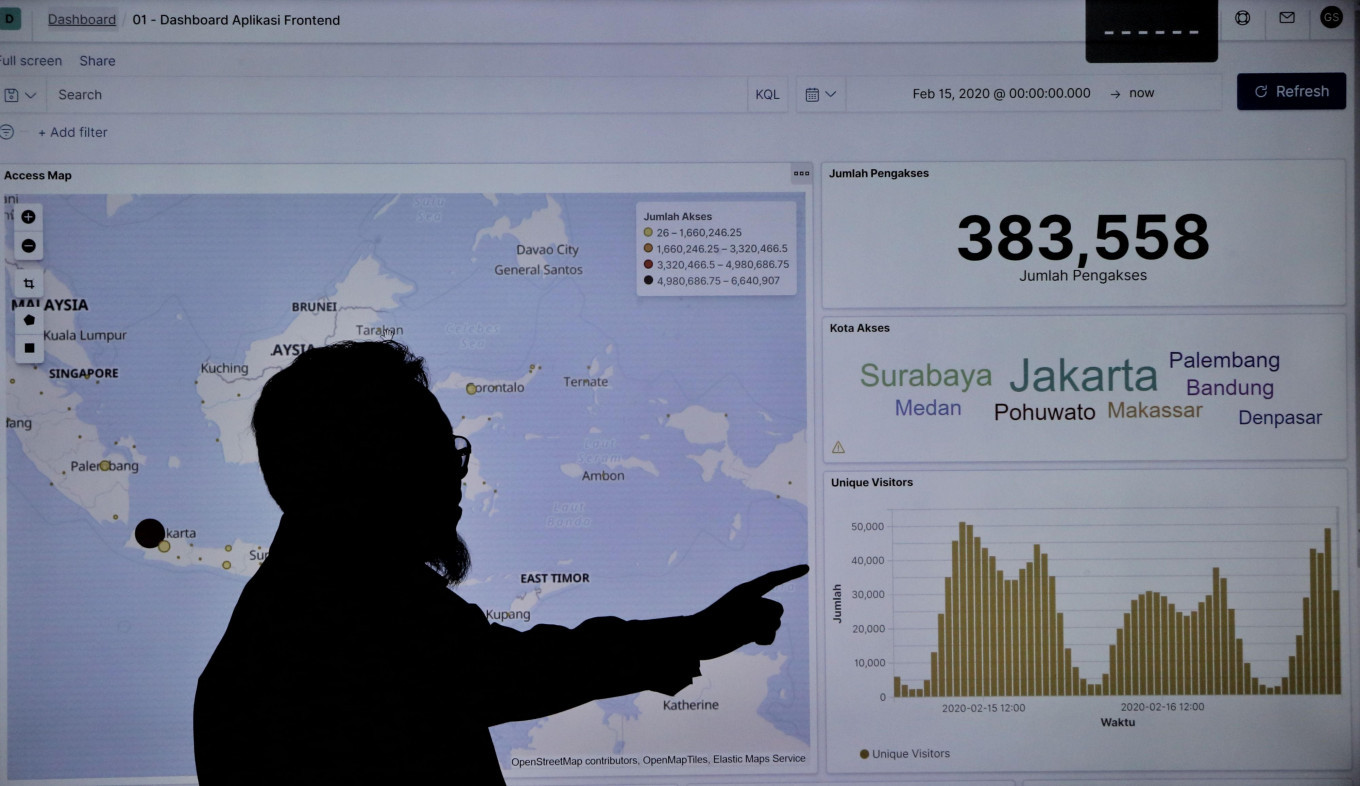Popular Reads
Top Results
Can't find what you're looking for?
View all search resultsPopular Reads
Top Results
Can't find what you're looking for?
View all search resultsOne population data set
The government’s population data have been used in a number of elections, at both national and regional levels, and have often sparked controversy, especially because the official data are allegedly used to give incumbent candidates an edge.
Change text size
Gift Premium Articles
to Anyone
T
he national census is underway amid the COVID-19 pandemic, with more than 190,000 field workers from Statistics Indonesia (BPS) collecting the data of every citizen through face-to-face interviews or other mechanisms. The counting can only take place at night for the homeless or other citizens, like seafarers, who spend most of their time away from home.
Challenges, even opposition, also confront the field workers, as has happened in the Papua regency of Nduga. On Tuesday, a number of people seized documents from BPS workers in a show of protest against the government, who they said had failed them. The Papua highland regency has seen a series of violent incidents in the past two years, which has displaced hundreds of local people.
As part of the 10-yearly census, the door-to-door visits kicked off on Sept. 1 and will last until Sept. 30. The conventional method had been delayed for two months due to the raging pandemic. As in other countries, the census began with the online data collection of every household from mid-February to the end of May. Over 51 million have filed their personal data with the BPS, which means an estimated 80 percent of Indonesian citizens have not yet been counted.
The country’s population is projected to reach 270 million this year, with 185 million, nearly 70 percent, of the population in the productive age of between 15 and 65 years old. This population structure is deemed ideal for Indonesia to kickstart its transformation into a high-income country.
Still, the census is important as it will determine government policies and programs, including the post-pandemic recovery, with minimum distortions. What matters the most in every census, therefore, is accuracy of data.
This year’s census is different from the previous nine, in several ways. Apart from the online data filing, the census is actually verification of data collected by the Home Ministry’s Population and Civil Registration Directorate General (Dukcapil).
The government’s population data have been used in a number of elections, at both national and regional levels, and have often sparked controversy, especially because the official data are allegedly used to give incumbent candidates an edge.
But even if political motives are absent, the government’s population data are imperfect. The National Commission on Violence against Women has found that only 1.25 million people with disabilities were registered as eligible voters in the 2019 elections, less than 5.5 percent of the estimated number of people with disabilities.
The census is therefore expected to remove all the discrepancies and provide credible data, which all state institutions, including the General Elections Commission (KPU), need the most. The controversy over voter lists can be avoided in the future if the country, through the census, can build one set of population data.
Beyond the political nuance, the census will help the country realize its long-overdue single identity number that will ensure every citizen gets what they deserve from the state. If India, with a population of 1.3 billion, can compile a database for all its citizens, Indonesia can do so too.
Your Opinion Matters
Share your experiences, suggestions, and any issues you've encountered on The Jakarta Post. We're here to listen.
Thank you
Thank you for sharing your thoughts. We appreciate your feedback.










